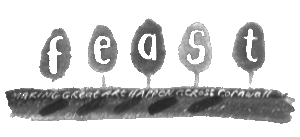The Maker The Charles Causley Literary Blog
‘Sweeping Puddles’ by Arlene Jackson
Arlene Jackson is a former nurse, living in Glasgow. Arlene had to leave her profession many moons ago, due to disability. This provided her with a view from the other side of the fence, from which she writes fiction and crafts research possibilities in both literature and disability studies with a focus on themes of isolation. She graduated from Lancaster University with an MA in Creative Writing in 2017 and is currently a postgraduate researcher at Manchester Metropolitan University. She has published short fiction in several literary magazines and is currently editing her first novel. She has one grown-up daughter who willingly cheers her on.
The forecast broke its promise at twenty seven minutes past ten. The room grew dark and he would have willingly sat in it. But the thought of the headmaster, who would be lifting his eyes from his paperwork, and expecting to see the hall lights in full yellow-glare by the time he reached the light switch in his own room, pushed him out of his chair. The entrance, hall, dining hall and assembly room ignited in domino succession. On his way back to his room he rang the bell. Twice: for “a wet play”, envisaging the teacher’s despair at having to amuse their various crews inside.
The vociferous rain called him to the window. He turned his head up. The burgeoning sky reminded him of the sacks that groaned beneath helicopters as they hovered above Australian forest fires. There were no individual clouds, just one mass in the shade of steel that reminded him of scans. Scans that he had stared at through blurred eyes.
By eleven, the storm had moved along. The sky submitted to the thinnest of clouds, spreading out to a salt and pepper veil.
The children would be released at lunchtime. He would have to make the playground safe.
He took his wide, hard-bristled brush out with him, meeting his first puddle within two steps of the door. He leaned hard against the tall handle, pushing the bristles deep into the water, which had pooled to the colour of rusted coins. It immediately ran back towards him. He drove the brush in again, pushing the tide, which he had created, outwards, thinking, for the hundredth time that day, how futile his job was. The kids wouldn’t drown in the puddles. They would see it as a pool full of sharks and turtles, a sea that they must sail to reach a treasure island. But the headmaster didn’t want drenched kids hanging around radiators or parents who didn’t know what a pair of wellies were, phoning him from their own desks, in their own offices, to complain.
He dared to raise his eyes towards the house. It hadn’t been washed away. Unlike him, it wasn’t crumbling from within, ready to dissolve with one final shower. He could (and did) ignore his own needs but he couldn’t ignore the house. Julie wouldn’t have that. Her ornaments deserved to be dusted, the rugs which she had woven hoovered and the windows which she had waved out to him from kept clear and shining.
He had dismissed this job when Julie had shown him the ad in the paper: the sound of kids laughing and playing, the rush of parents at the beginning and end of each day, most with another younger child in a pram or a baby in their arms, was the last thing Julie needed. She had told him it would be no worse than going to the supermarket; park; café; church; petrol station; cinema; airport or the beach: children were everywhere. She had persuaded him that at least with this job, they’d also have a house, and therefore each other close by. On cold days, she handed him a flask over the fence. On hot days, a tall tumbler of fresh orange juice. Every day, he waved across to her and felt whole.
The pool of water beneath him was shallow now, but he drove the brush in hard before standing back to watch the water seep in and around the divots in the tarmac. His eyes lifted again to the house. The image in his mind of Julie holding out a flask of soup to him, for him, made him realise he was cold. Cold and damp. Cold skin, damp cheeks. He looked again to the sky. It was clear. The drops which ran down his face were salty.
Julie had tried not to get involved with the kids but they had gravitated towards her. They had drawn her closer to the school with each week: she baked for fetes, made rosettes for sports day, played piano at assemblies and was roped-in to a reading group for kids who were struggling. She amazed him with stories of the staff. Teachers, dinner ladies and cleaners whom he had known by name for months but who Julie, in weeks, knew by heart.
He rang the bell once for an outdoor playtime. The kids ran out without fear of finding water on their shoes until they reached the grass, where they slid and rolled before comparing patches of mud which turned their uniforms to camouflage. Lorna, a little thing from year two, came flying out from the muddy huddle, wailing and running directly towards him. He bent to his knees without thinking. He dug in his pocket for a tissue, uncrumpled it and pushed it into her hand, “dry your face, wee one.”
She pushed it back towards him, “your face needs it more.”
He wiped his cheek with the back of his hand. Still wet.
Her tears had gone, “Is Mrs Julie still dead?” she said.
“Yes,” he replied. He hated adults who lied to kids. Who talked about heaven, angels, that Julie was too special for this world, all the stuff that had been said at the special assembly which the school had held to honour Julie, during which he had wanted to scream out to them to stop trying to make it make sense, because it never will.
“When I’m sad, I skip.” Lorna said.
He laughed, “I don’t think I could do that.”
“Why not? Mrs Julie did it all of the time.”
“Did she?” he said, intrigued.
“All of the time.”
He stood up, ready to point her back in the direction of her friends but she took his hand and hopped forward, looking up at him, “come on,” she said, “Mrs Julie did it this way,” she tugged at his hand, “this way…Mrs Julie always said… make sure that you skip over any puddles.”












